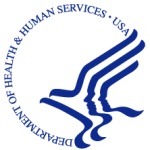- Industry: Government
- Number of terms: 33950
- Number of blossaries: 0
- Company Profile:
United States Department of Health and Human Services, Radiation Emergency Medical Management
Treatment that adds, blocks, or removes hormones. For certain conditions (such as diabetes or menopause), hormones are given to adjust low hormone levels. To slow or stop the growth of certain cancers (such as prostate and breast cancer), synthetic hormones or other drugs may be given to block the body’s natural hormones. Sometimes surgery is needed to remove the gland that makes a certain hormone. Also called endocrine therapy, hormonal therapy, and hormone treatment.
Industry:Health care
Within the peritoneal cavity (the area that contains the abdominal organs). Also called IP.
Industry:Health care
A term used to describe cells that look nearly normal under a microscope. These cells are less likely to grow and spread more quickly than cells in high-grade cancer or in growths that may become cancer.
Industry:Health care
A change that occurs in the DNA of certain cells (such as tumor cells) in which the number of repeats of microsatellites (short, repeated sequences of DNA) is different than the number of repeats that was in the DNA when it was inherited. The cause of microsatellite instability may be a defect in the ability to repair mistakes made when DNA is copied in the cell. Also called MSI.
Industry:Health care
A clinical study that includes some, but not all, of the eligible patients identified by the researchers during the study registration period. This type of study does not usually have a control group.
Industry:Health care
A medical procedure that uses chemicals or drugs to cause inflammation and adhesion between the layers of the pleura (a thin layer of tissue that covers the lungs and lines the interior wall of the chest cavity). This prevents the buildup of fluid in the pleural cavity. It is used as a treatment for severe pleural effusion.
Industry:Health care
A drug that contains a radioactive substance and is used to diagnose or treat disease, including cancer. Also called radioactive drug.
Industry:Health care
When referring to a medical test, sensitivity refers to the percentage of people who test positive for a specific disease among a group of people who have the disease. No test has 100% sensitivity because some people who have the disease will test negative for it (false negatives).
Industry:Health care
A substance or product that is added to a person’s diet to make sure they get all the nutrients they need. It may include vitamins, minerals, protein, or fat, and may be given by mouth, by tube feeding, or into a vein.
Industry:Health care
